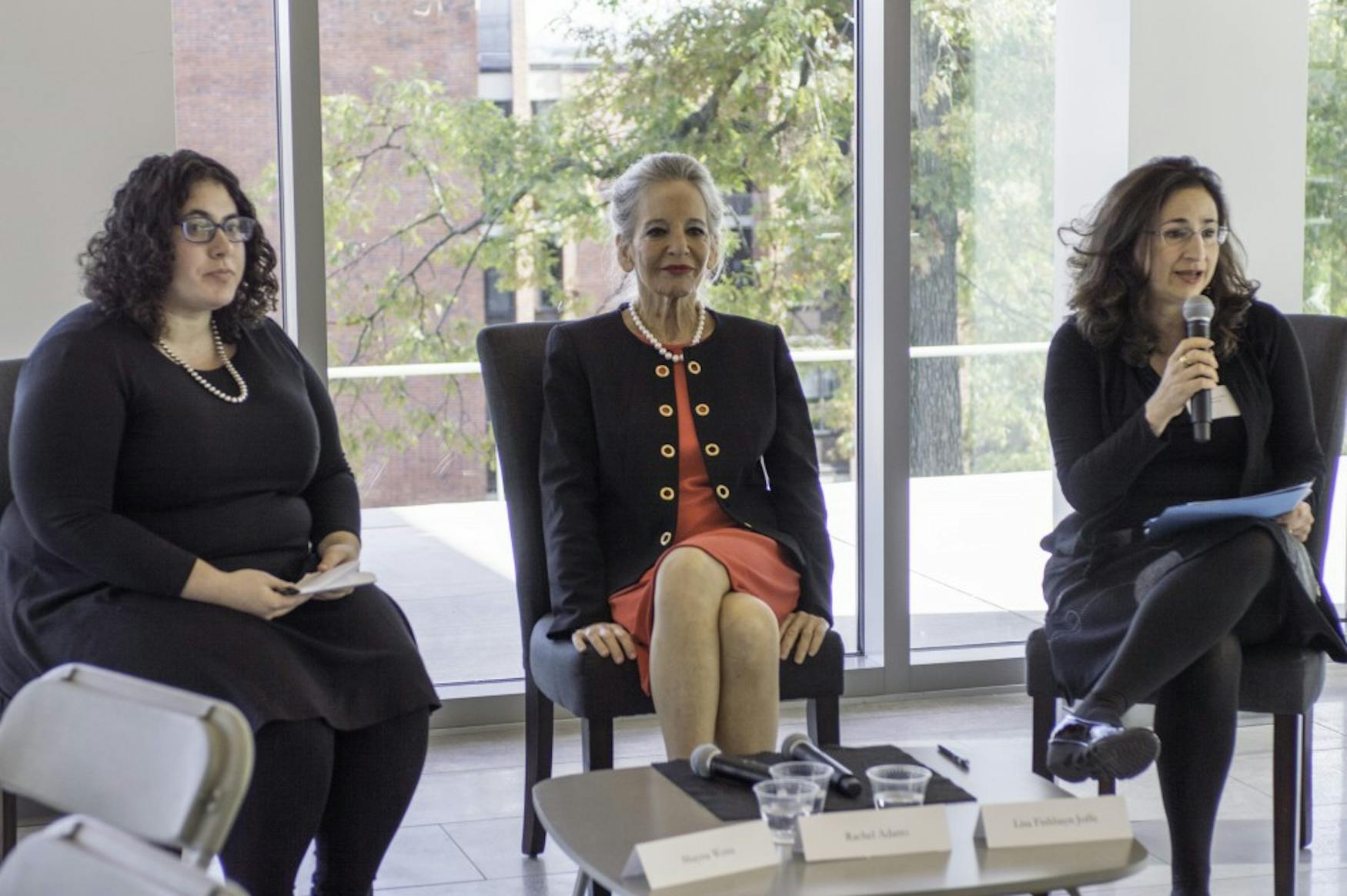Experts examine legal limits on photo editing
Rachel Adatto, the architect of Israel’s so-called “Photoshop law,” joined two Brandeis scholars on Thursday to reflect on the law’s legacy. Adatto, a women’s health expert and former member of Israel’s parliament, authored the law to counter misperceptions of healthy body shapes by imposing regulations on images that distort body size and shape.
Adatto led the effort to pass Israel’s “Photoshop Law,” which focuses on the connection between the media’s portrayal of skinny women and the development of eating disorders such as anorexia. After Adatto explained her reasons for creating the law, two University scholars offered their thoughts on the law and its impact. Shayna Weiss ’07 is the associate director of the Schusterman Center for Israel Studies, and her reflections focused on women’s lives in Israel. Dr. Lisa Fishbayn Joffe (PHIL), the Shulamit Reinharz director of the Hadassah-Brandeis Institute, discussed the Photoshop law from a legal perspective.
The Photoshop law, passed in March 2012, has two parts. The first part of the law mandates that people with a body mass index less than 18.5 cannot be hired as models. (Athough BMI is frequently used to assess whether someone is over- or under-weight, the U.S. Centers for Disease Control notes that “because BMI does not measure body fat directly, it should not be used as a diagnostic tool.”)
The second part states that any advertisement that includes a photo of a model that has been digitally altered to make the model look thinner must have a disclaimer stating that image editing software was used.
Adatto explained that she did not choose to join the Knesset specifically because she wanted to enact this Photoshop law. She recounted how she became a member of the Knesset because then-Prime Minister Ariel Sharon invited her to join the Kadima party, which he was founding. Once in the government, she “accidentally” decided to focus on fighting anorexia.
She recounted attending a Knesset meeting that discussed the problem of women being hospitalized from eating disorders such as anorexia. “Everyone was looking at me, because … I was the only physician in the room,” Adatto said. This experience pushed Adatto to work on the issue of anorexia, which led her to discover “a huge world with a huge problem.”
She explained that “people don’t understand that being underweight, or being anorexic, is such a chronic and long-term disease.” In Israel, there are 3,000 new cases of the disorder each year, she said.
Adatto chose to focus on what she sees as the “direct connection” between the influence of the media and the development of anorexia. Young girls see “very thin models” throughout the media, which Adatto believes makes these girls connect the goal of success to the idea of being skinny. This pressure pushes girls to start dieting, which is a “slippery slope” toward developing an eating disorder, Adatto said, clarifiying that emotional distress, often from sexual abuse, is also involved.
The goal of the Photoshop law is to ensure that people, especially young girls, looking at an extremely skinny model in an advertisement “can understand that this is not the real person,” she said.
Adatto has seen how the “Photoshop Law” has made people inside and outside of Israel start to talk and learn about eating disorders. “The issue was raised,” she said. “This is the most important thing that the law did.”
But Adatto was careful to stress that legislation alone cannot solve the problem. Body image education that starts from a young age is another important part of the solution, she said.
In her reflection, Fishbayn Joffe explained that similar laws have been passed in France, Spain, Italy, Brazil and India, but efforts to enact such a legal policy in the United States have failed. Weiss reflected that the law “seems almost un-American.”
Fishbayn Joffe looked at the two parts of the law in her reflection. She argued that the idea of limiting models’ employment is “not even considered” in the U.S., while the idea of enforcing “truth in advertising” is more accepted. She pointed to companies who have started unaltered marketing campaigns and celebrities that have called for their pictures not to be altered, such as the AerieREAL campaign, which uses unretouched photos. These examples, she said, demonstrate the prevalence in the U.S. today of some of the same ideas that motivated Israel’s law.
Weiss looked at how the Photoshop law affects “the burdens placed on women’s bodies in Israel.” She highlighted a type of scholarship that portrays female bodies in Israel as being “overburdened” by expectations of nationalism, religious oversight and the nation’s pro-natalist policies that encourage women to have children. Weiss wondered whether this law alleviates or intensifies the “scrutiny” that women face in Israel as they struggle to fit a specific ideal.



Please note All comments are eligible for publication in The Justice.